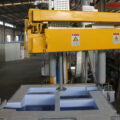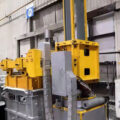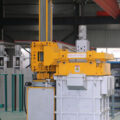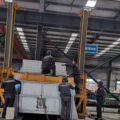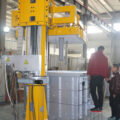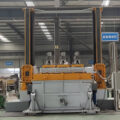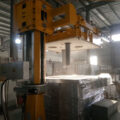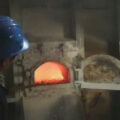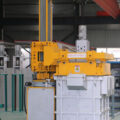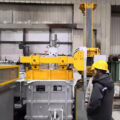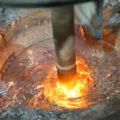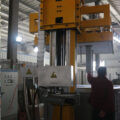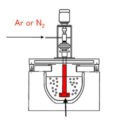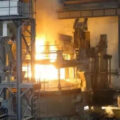At present, the box-type degassing unit is commonly used in the market. The box-type degassing unit has high degassing and refining effect, and the heating system can reduce the temperature loss of casting.
The molten aluminum flows into the degassing cabinet and stays in the refractory lining. The cabinet has a heater to keep the molten aluminum in a molten state. After the inert gas is ejected by the rotating rotor, it is broken into countless small bubbles by the high-speed rotating rotor, and the small bubbles diffuse and rise in the molten aluminum to remove hydrogen. During the ascending process of small bubbles, due to the effect of surface tension, some of the inclusions are brought out of the molten aluminum to the surface, forming scum to remove the inclusions in the molten aluminum. At the same time, the stirring effect of the rotor makes the alloy composition in the molten aluminum more uniform.
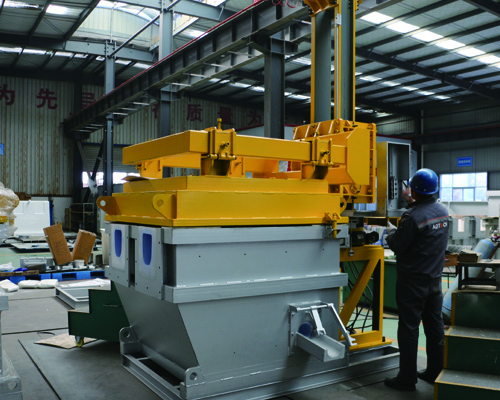
The most notable feature of the molten aluminum degassing system is the graphite stator and graphite rod/rotor structure. The graphite stator does not rotate in the molten aluminum and protects the graphite rod/rotor assembly. The graphite rod and the graphite rotor are assembled together to stir the aluminum water. The inert gas passes through the gap between the stator and the graphite rod, and is injected into the molten aluminum from the grooves at the bottom edge of the stator and the top edge of the graphite rotor. The shear force of the graphite rotor causes the molten aluminum to circulate downwards, thereby offsetting the influence of natural buoyancy, so that the bubbles ejected from the rotor and stator are sprayed radially and evenly dispersed in the molten aluminum to achieve the best degassing Refining effect.
The significant advantages of the box-type degassing unit are as follows:
1) Increase the residence time of bubbles, thereby improving the degassing refining effect;
2) Keep the temperature of the molten aluminum in the box equal to or higher than the casting temperature, thus reducing the temperature of the holding furnace;
3) Reduce the variation of casting temperature.

